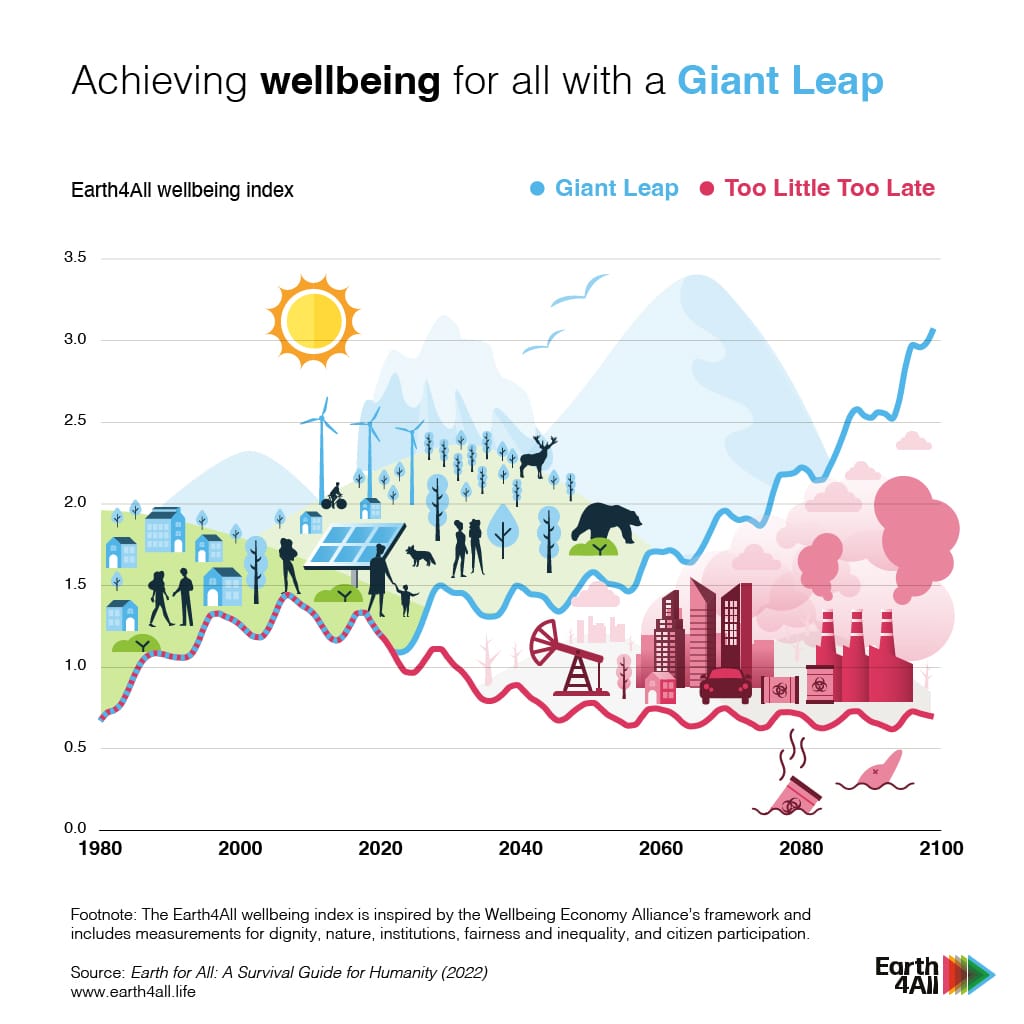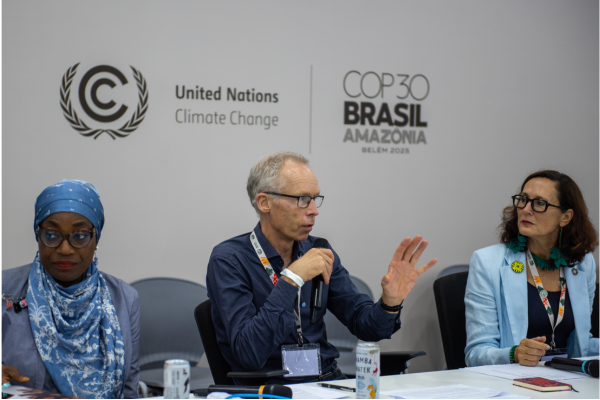The negative environmental and social side-effects of our current development trajectory, typically based on a narrow focus on growing GDP, are well known. In a previous article we argued that GDP is indeed a problematic indicator for progress and discussed the implications for Earth4All in greater detail. Rather than maximising the dollar value of products and services (which has wrongly been used as a proxy for progress in human wellbeing), we should focus on implementing five extraordinary turnarounds which will increase wellbeing for the majority of the global population.
But what exactly is wellbeing?
There are a number of wellbeing definitions that often consider local circumstances, value systems and traditions. The various definitions all acknowledge that human wellbeing requires a broader conception than merely maximising income and consumption, and many emphasise the interdependence of human wellbeing and a healthy planet.
Wellbeing can be seen as a vision for economies to meet human needs and capabilities while acknowledging the biophysical reality of a finite planet – which is precisely the goal of Earth4All and reflected in the wellbeing index introduced in Earth for All: A Survival Guide for Humanity.
As a reaction to the limitations of GDP growth as a goal in itself, ideas around wellbeing economics are gaining increased attention.
The term “wellbeing” was established as a useful alternative to our current linear, neoliberal, growth-at-all-costs economic approach. The Wellbeing Economy Alliance (WEAll) describes what the economy needs to deliver for human and ecological wellbeing as follows:
- Dignity: Everyone has enough to live in comfort, safety and happiness.
- Nature: A restored and safe natural world for all life.
- Connection: A sense of belonging and institutions that serve the common good.
- Fairness: Justice in all its dimensions at the heart of economic systems, and the gap between the richest and poorest greatly reduced.
- Participation: Citizens are actively engaged in their communities and locally rooted economies.
The Earth4All Wellbeing Index builds on the WEAll needs, and quantifies wellbeing through a selection of variables that were developed to reflect wellbeing economy principles in the context of a world model.
The Earth4All Wellbeing Index incorporates:
- Dignity: worker disposable income (after tax).
- Nature: climate change (global surface average temperature, in Celsius) – used as a proxy for many other environmental dimensions.
- Connection: government services indicated by spending per person, i.e., to institutions that serve the common good.
- Fairness: the ratio of owner income after tax to worker income after tax – representing inequality in society.
- Participation: people’s observed progress (previously improving wellbeing) and labour participation.
While every quantification has its limitations and wellbeing has many definitions, the average wellbeing index can reveal important insights about our global economic system. We do of course know that “dignity” doesn’t equal disposable income and that “connection” goes beyond government services. But as per George Box’s statement that “All models are wrong, but some are useful”, we believe that this approximation discloses important insights.

Most importantly: the Earth4All model shows that without implementing urgent policy measures to address both social and environmental crises, average wellbeing will decline. This is very much aligned with other research, showing that the economic welfare generated by economic activity has been declining in many countries for decades, measured by the Genuine Progress Indicator that accounts for social and environmental degradation (including, for example, income distribution and environmental costs).
We are convinced that implementing the Earth4All turnarounds offers an alternative where collective wellbeing remains the goal. Tackling the underlying structure of economic systems and focusing on concrete policy actions is more relevant than ever.



